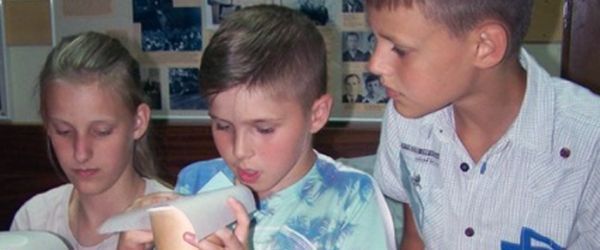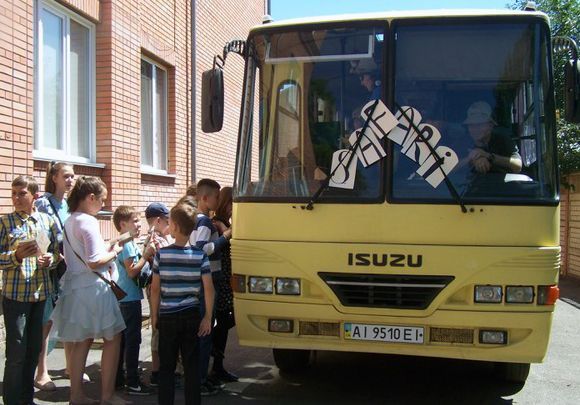
A missions conference just for kids
By Josie Oldenburg — Ukraine has great potential and desire to send missionaries to unreached people groups — and today’s youth likely will be some of those sent. SEND Ukraine missionary Jayne Russell believes children can play a great role in missions, even at their tender age.
“Children can pray, give money, and serve others as stepping stones to a life commitment of becoming missionaries or supporting missionaries,” Jayne said. “We want children to globally live and think. A call to missions can happen even at a very young age.”
To that end, Jayne and several other SEND Ukraine missionaries partnered with a team of Ukrainian ladies who had a vision for putting on the First Children’s Missions Conference of Ukraine. Adult missions conferences may be PowerPoint-heavy events, but this one was, in a word, FUN!

Nearly 300 children went on “safari,” received “stamps” in their conference passports, walked with buckets of potatoes on their heads, made African drums, and searched for answers to questions about the country of Zambia.
They got a taste of what life is like for cross-cultural workers when they tried to learn a Bible verse in a foreign language. They heard first-hand accounts from two current missionaries — one Ukrainian and one American.
Through a skit, the children learned that no missionary goes to the field alone. Missions takes prayer support and financial support as well as spiritual care for the missionary. The kids made piggy banks to encourage them to give to missions, and they made wordless bracelets to encourage them to share the gospel wherever God leads them.
“We planted seeds for missions in the hearts of children,” Jayne said. “Children need to understand that culture is different, but the need for salvation remains the same. Only God will know the full impact of this event.”
Additional Posts





